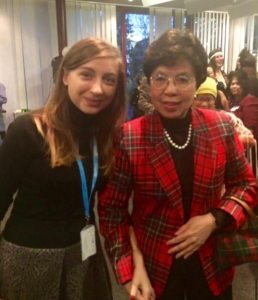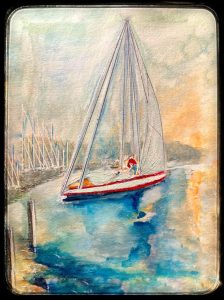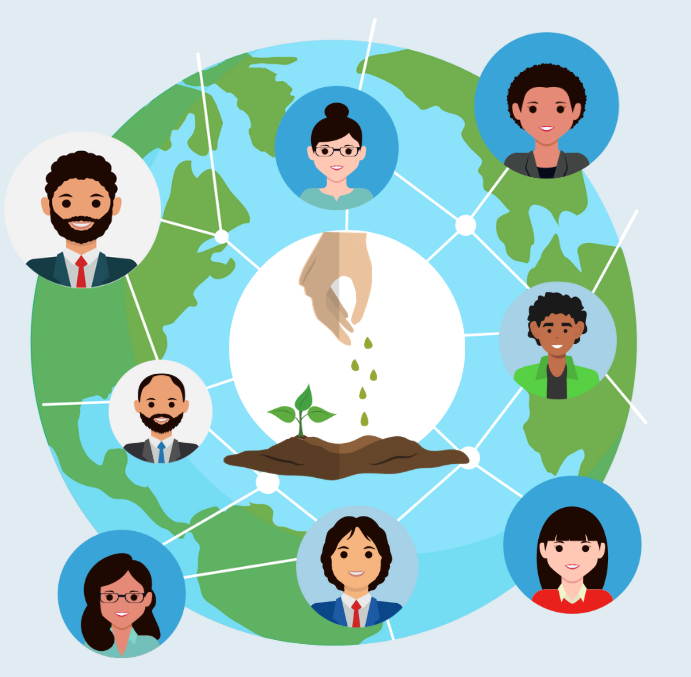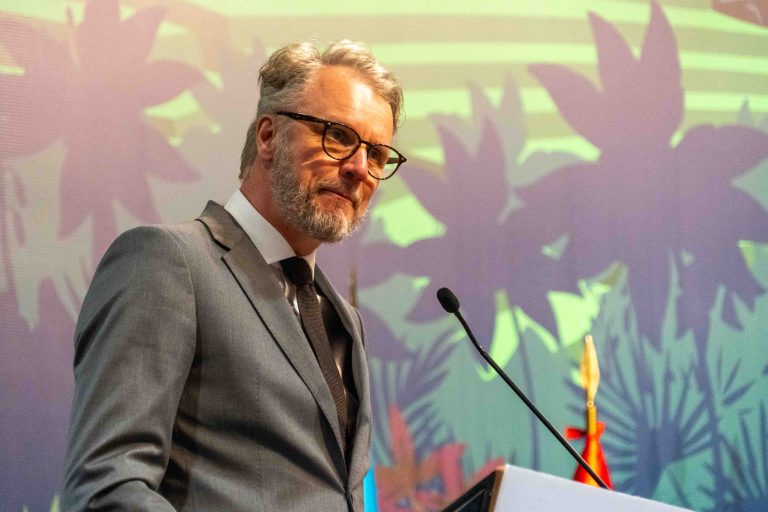ISF is pleased to announce that Lorelei Garagancea will join the Secretariat as Intellectual Property and Legal Affairs Manager starting 1 April 2025. In this role, Lorelei will lead the ISF Coordination Groups on Intellectual Property, Genetic Resources, and Engagement against Illegal Seed Practices.

Lorelei brings a dynamic blend of global legal expertise, a passion for innovation, and a deep belief in equitable access—making her a valuable addition to the ISF team.
With a strong academic foundation from institutions across Europe—including Paris-Sorbonne University, University of Bucharest, University of Geneva, and an LL.M. in International Contracts and Arbitration from the University of Fribourg—Lorelei has cultivated a robust legal background in intellectual property, life sciences, and international trade law.

Her professional journey began at the World Health Organization (WHO) headquarters in Geneva in 2015, where she was an intern and led the Intern Board to secure fair compensation for interns—an experience that shaped her approach to advocacy, equity, and leadership. She later deepened her expertise at the World Intellectual Property Organization (WIPO), focusing on genetic resources in life sciences, before serving as legal counsel to international organizations such as Procter & Gamble International Operations, Medicines for Malaria Venture, and Veristat.
Over the past three years, Lorelei has expanded her focus through doctoral research, exploring how the World Trade Organization (WTO) law balances the protection of intellectual property with the obligation to ensure access—an issue of great relevance to the evolving global seed landscape.
Lorelei’s interest in intellectual property is, arguably, philosophical: “IP rewards creations of the mind. It entices individuals to express themselves and develop a better world. Of course, this only works if there is fair sharing of these developments in a sustainable way.”
Her approach is informed not only by legal precision but by human insight. “Anything can be solved through listening, understanding, and perseverance,” she reflects—wisdom gained from advocating for inclusive systems and navigating complex multicultural legal environments.

Outside the office, Lorelei is a creative spirit and nature enthusiast. She finds calm and clarity in painting, which helps her refocus, and draws energy from outdoor sports like snowboarding and horseback riding. “There are no secrets with a horse,” she says. “They reflect what you bring,” which reminds her that “the ability to see reality as it is is also our opportunity to improve it.”
Please join us in giving a warm welcome to Lorelei! We look forward to the expertise, energy, and thoughtful perspective she brings to the ISF community.
To get to know her more, read our short Q&A with Lorelei below.
Q: What made you interested in intellectual property as a field of expertise?
Lorelei Garagancea (LG): The fact that IP rewards, in general terms, creations of the mind, it is the object of protection which differs from one IP right to another. Not only is there no limit to what the mind can create (hopefully, for the better), but human development and the fluorishement of civilisation stem from people’s imagination, which is the first to create the ensuing reality. IP protection entices individuals to express themselves and ultimately develop a better world. Of course, this is true if a fair sharing of new developments occurs, in a sustainable manner long-term.
Q: Can you share a memorable experience from your career that shaped your approach to legal challenges, in general, or in agriculture, specifically?
LG: What comes to my mind is a human rights challenge more specifically than a legal challenge. Ten years ago I was an intern at the World Health Organisation (WHO) headquarters in Geneva. There, I learnt about the efforts of the intern community to obtain financial support for interns because the opportunity to gather experience in UN organisations was very limited and potentially virtually non-existent for many people around the world. Interns were not granted any stipend at that time in most UN organisations. On the UN side, perhaps the only exceptions were WIPO and ILO. Among the other large international organisations in Geneva, the WTO also paid its interns.
I became President of the Intern Board so that I could represent the interests of the intern community with certain WHO departments (HR, the Ombudsman office) and liaise with interns in other UN organisations to advocate for financial support for interns. Our position paper was included in the agenda of the bi-annual Program, Budget and Administration Committee of the WHO for discussion by the member countries who were very supportive of the initiative. Interns in our community (the Fair Internship Initiative) also had meetings with staff at the missions’ offices in Geneva.
The fact that the intern community had continuity from one generation of interns to the next resulted in success. A couple of years later, Dr. Tedros [Adhanom Ghebreyesus, current WHO Director-General] approved the financial support for interns which began to be gradually implemented, first with canteen vouchers and medical insurance and then with monthly stipends. This enlarged opportunities for many young people around the world. Personally, I learned that anything has a solution if approached with the mindset of listening, communicating, understanding the other’s perspective, trying to make your perspective heard and, essentially, with perseverance because “Rome wasn’t built in a day,” no? Morcheeba would agree with their lovely song.
Q: Outside of work, what hobbies or interests keep you inspired, and how do they influence your perspective on the work you do?
I really enjoy painting which stills my mind, clears my thoughts, is completely relaxing for me and makes me focus better afterwards. I also really enjoy being outdoors and doing some sports (snowboarding for example) — for similar reasons and because it gives me a lot of energy and restores positivity when I lose it. 🙂
I also like horseback riding because there are no secrets when spending time with a horse, the horse will feel everything and tell you all about it. And I believe that the ability to see reality as it is is our opportunity to improve it.


